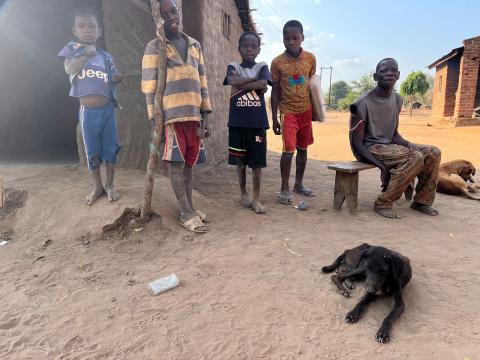El Nino Crisis in Mozambique: Impact on School Retention and Agriculture

Mozambique is facing significant challenges in retaining students in school due to the devastating effects of El Nino, particularly in Gaza province. The drought has resulted in the loss of thousands of hectares of crops, leading to widespread hunger and increased school dropouts, especially in remote areas like Chicualacuala.
Mozambique is at risk of seeing its efforts to retain children in school, particularly girls, undermined by the ongoing impacts of El Nino. Since last year, this climate phenomenon has severely affected the country, with the provinces of Gaza and Tete among the hardest hit. In remote districts such as Chicualacuala in Gaza province and Mutarara in Tete province, World Vision has documented the severe impacts of El Nino, highlighting the urgent need for support.
According to UNICEF (2024), less than half of Mozambique’s students complete primary education, with 4 out of 10 school-aged children (6-17) not finishing their primary schooling. Furthermore, only 1 in 4 children complete secondary-level education.
The situation is particularly dire in the Chicualacuala district of Gaza province, where over 14,000 families are struggling due to severe drought. More than 2,000 of these families rely solely on agriculture, and local government reports indicate that over 4,500 hectares of crops have been lost. This agricultural devastation has left granaries empty and reduced the number of daily meals for many families, with some only managing one meal per day.
Children are especially affected by this crisis. Hunger forces many school-aged children to drop out, and those who remain in school often struggle to stay attentive during lessons.
Sara Sidumo, a local farmer, describes the heartbreaking reality: "We have nothing to eat. Since dawn, the children have been playing and not going to school because of hunger. This year, the heat has been intense; even if a little rain falls, the soil loses moisture very quickly. In this situation, we don't know what to do."
In Mutarara district, the number of people hit by the crisis is at 15,000 and World Vision visited families that are currently separated as other members leave heading to other districts in search of food and other sources of income.
“In the last six months we have registered over 15,000 people affected that also includes children,” said Melode.
“We are noticing a lot of children who are dropping out of school” said Melode Aleixo, World Vision Mozambique district Manager after a recent visit to a community impacted by El Nino in Mutarara district.
In both provinces of Gaza and Tete where communities predominantly rely on the cultivation the drought has severely impacted their crops, and only those with additional income sources can cope with the challenges imposed by El Nino.